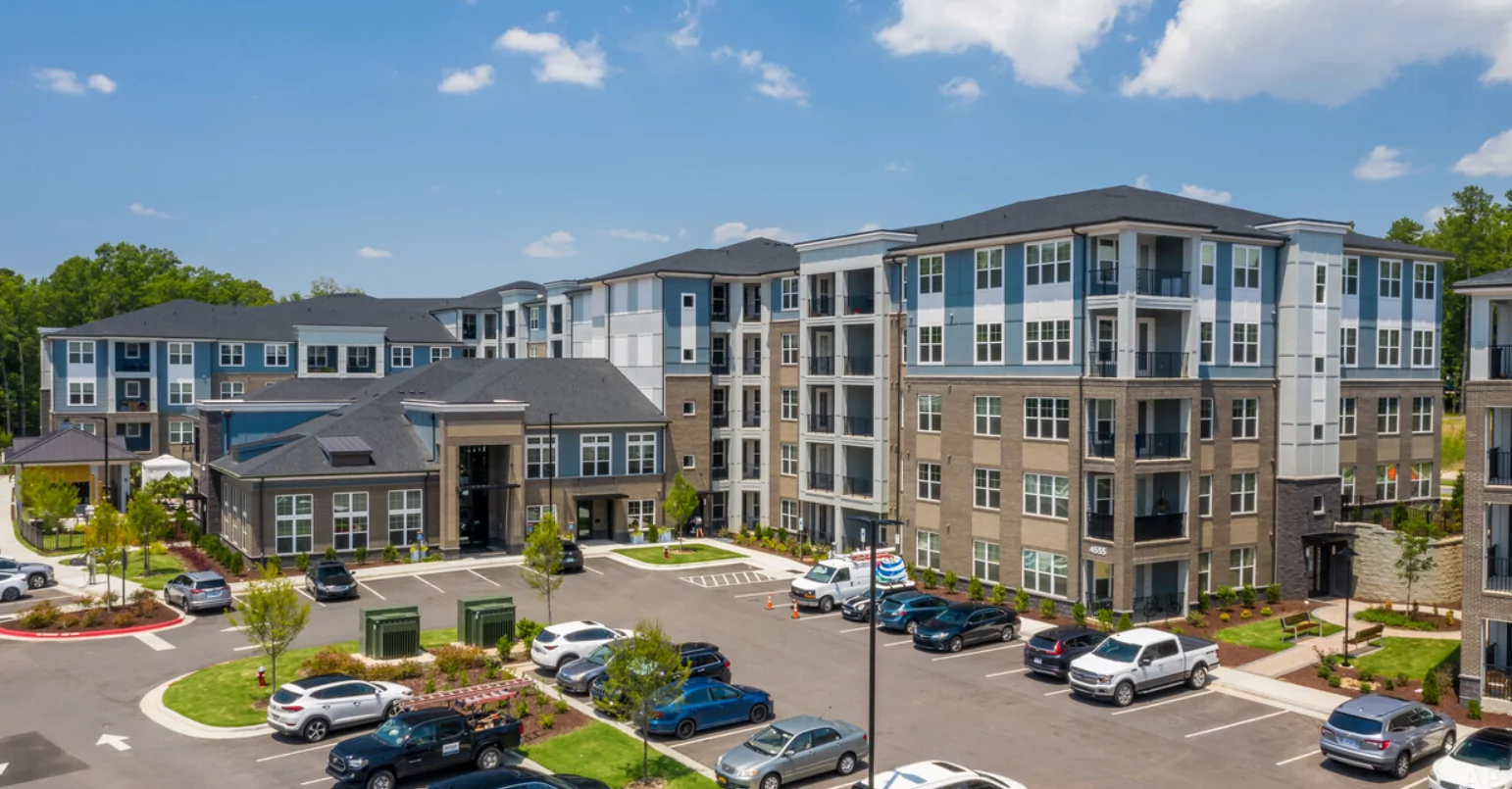DST Offering Detail
NexPoint Aviation DST

DST Offering Highlights
NexPoint Aviation DST is a 298-unit multifamily property located in Morrisville, North Carolina – 15 minutes west of downtown Raleigh. Built in 2021, Aviation Crossing Apartments is 94.3% occupied as of July 2022 and offers residents studio, 1-, 2- and 3-bedroom floor plans ranging from 715 – 1,430 square feet. The DST plans to make minor capital improvements and hire a nationally recognized third-party property management company to increase rents while implementing a revenue and lease expiration management system. The Raleigh-Durham-Cary Combined Statistical Area (Raleigh-Durham-Cary, NC CSA) is the second largest CSA in the state of North Carolina with over 2.1 million residents and a diverse economy. In 2021, Raleigh’s population grew by 2%, making it the second-fastest growing large metropolitan area in the U.S. Aviation Crossing Apartments is centrally located in the region, equidistant from Durham and Raleigh, approximately a 15-minute commute to either using the nearby thoroughfares.
| Property Status: | Closed Offering |
|---|---|
| Property Type: | Multi-Family |
| Property State: | North Carolina |
| Property City: | Morrisville |
| Properties: | 1 |
| Units: | 298 |
| Offering Size: | $133,656,899 |
| Equity Offering: | $77,258,899 |
| Loan-to-Value: | 42.19% |
| Loan Terms: | 10-yr Fixed, 10-yr Interest Only at 4.12% |
| Cash Flow: | Call to Confirm |
About NexPoint
NexPoint is an alternative investment platform comprised of a group of investment advisers and sponsors, a broker-dealer, and a suite of related investment vehicles. Since NexPoint’s inception in 2012, the NexPoint platform has acquired $13.5 billion of gross real estate assets across several real estate sectors, including multifamily, single-family rental, self-storage, hospitality, office, industrial, retail and life sciences. In addition to Delaware Statutory Trust properties, NexPoint manages three publicly traded REITs – two of which trade on the New York Stock Exchange under ticker symbols NYSE: NXRT and NYSE: NREF.
Benefits of a Delaware Statutory Trust
Delaware Statutory Trusts are a popular 1031 Exchange replacement property option that allows for fractional ownership of high-quality institutional properties acquired by and managed by large real estate firms, referred to as DST sponsors. DSTs provide a unique and flexible solution to investment property owners who want to defer tax and continue to own investment property without the management requirements of directly owned property. Below are some of the benefits of investing in DST real estate.
- Tax Savings: DSTs allow for the deferral of federal capital gains tax, state capital gains tax, net investment income tax, and depreciation recapture tax. The tax savings can be significant, especially in states where the potential tax liability can be as high as 42%.
- Monthly Income Potential: DSTs are structured with an emphasis on cash flow for investors and typically include high-quality institutional property.
- Eliminate Active Property Management: Ownership of a DST is entirely management free.
- Eliminate Tax for Estate Beneficiaries: DSTs allow for a “step-up in basis” upon the passing of an owner (elimination of Capital Gains, Depreciation Recapture, and Net Investment Income Tax).
- Low-Cost Non-Recourse Debt Matching: Most investors have debt that must be matched in their exchange, therefor many DSTs are structured with debt in place.
- Low Risk of a Failed 1031 Exchange: Extensive DST property due diligence is prepared in advance and DST closings can occur quickly – in a matter of days.
DST Risks
DSTs offer many benefits however they are not suitable for everyone and come with risks. Therefore, DSTs are only available to accredited investors. Before deciding to invest in DST real estate, carefully consider the following considerations: Lack of liquidity, timing of exit, lack of control, and interest rates can affect financing, leasing, and appreciation. Additionally, loan modifications may not always be possible, cash flow is not guaranteed, and projected appreciation may not occur. There are also management costs and fees associated with owning DSTs which are disclosed in the prospectus. While not a precisely defined term, a high grade, institutional-grade, or institutional-quality property generally refers to a property of sufficient size and stature to merit attention from large national or international investors.


